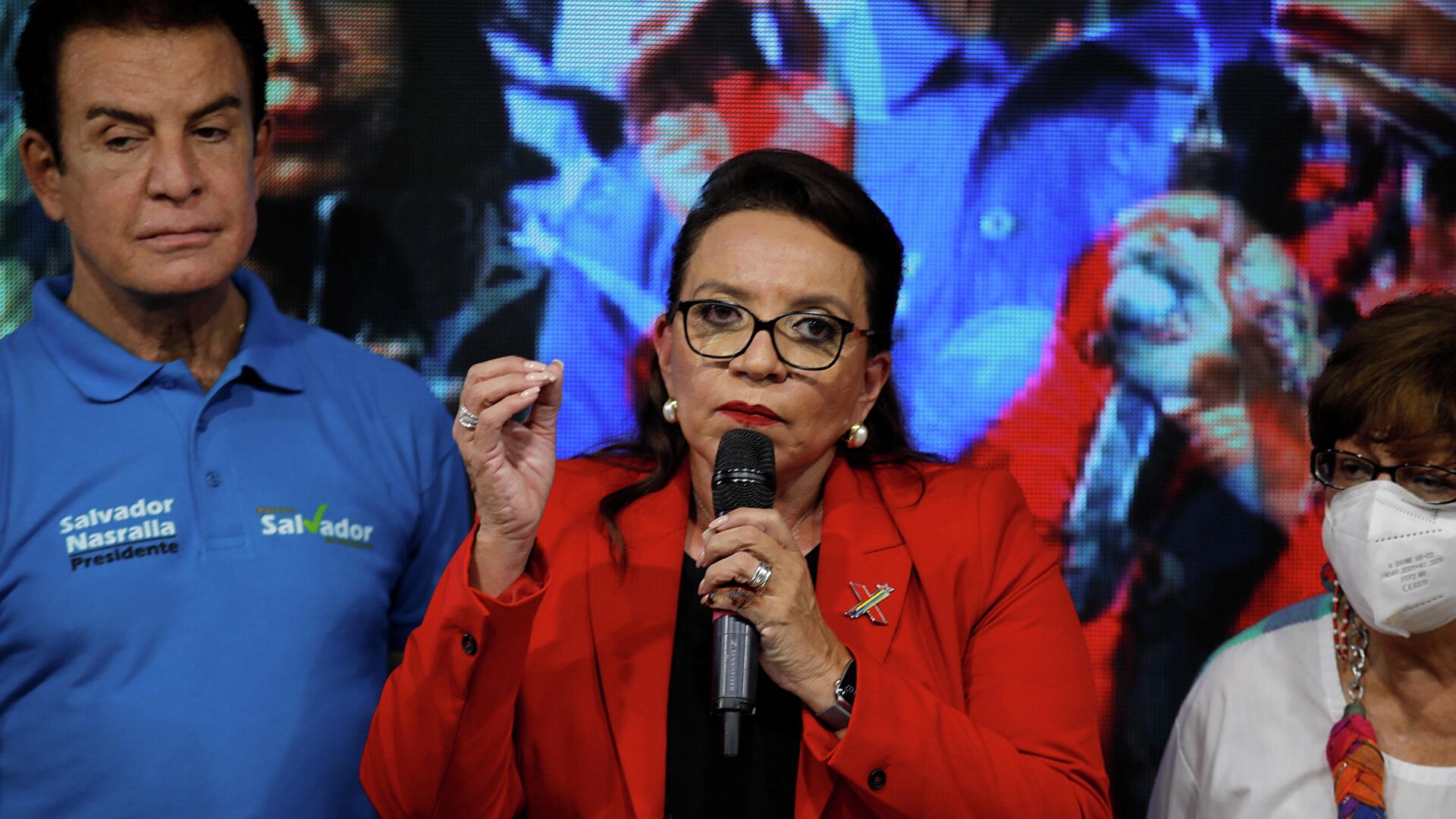Xiomara Castro Won’t Immediately Switch Honduras’ Recognition From Taiwan to China - Report
23:07 GMT 10.12.2021 (Updated: 12:43 GMT 19.06.2023)

© REUTERS / JOSE CABEZAS
Subscribe
After southern neighbor Nicaragua switched its recognition of the Chinese government from Taipei to Beijing, Honduras was widely expected to follow suit. However, recent comments by the incoming administration suggest that won’t immediately be on the agenda.
"The new government will maintain relations with Taiwan," Gerardo Torres, secretary of international relations for Honduras’ Libre Party and a member of President-elect Xiomara Castro’s transition team, told Reuters on Friday.
"President-elect Xiomara Castro has been clear, these ties will be maintained. Nobody in the party wants to enter government distancing ourselves from the United States,” he added.
That’s a big reversal of one of her campaign pledges, which was to “immediately open diplomatic and commercial relations with mainland China.”
However, Rodolfo Pastor, another member of Castro’s transition team, also told the news agency that Honduras could still recognize China in the future, because the country of 1.4 billion is a “new superpower.” He said the new government would study the matter.
The Central American nation is just one of 14 that still recognize Taiwan, formally the Republic of China (ROC), as the legitimate government of China. The ROC nominally ruled all of China from the 1912 liberal revolution that forced the last Chinese emperor from power until the 1949 foundation of the socialist People’s Republic of China (PRC), which displaced its power on the mainland. However, much of the republican period was marred by warlordism, civil war, and a devastating invasion by Imperial Japan, meaning the ROC rarely got to exercise real power over the land.
The Red Army that defeated the ROC in the civil war in 1949 was unable to invade the island of Taiwan, leaving the US-backed government intact. Both governments claim to be the legitimate government of China and require other nations to accept their position before establishing relations. The US made the switch in 1979, as have the vast majority of the world’s nations. However, the US also continued to maintain informal ties with Taipei, funneling their weapons and giving them diplomatic cover and a pressure point against Washington’s rivals in Beijing.
Nicaragua, to Honduras’ south, was the latest to go over to Beijing, announcing the switch on Friday morning from Tianjin, where Chinese and Nicaraguan diplomats put the final touches on the deal. The remaining 14 states are mostly small other Caribbean nations or small Pacific island countries, all of which the US is able to dominate.
The few states that remain have become areas of tight competition, as each side seeks to woo them with promises of economic investment and trade. In the Pacific, the US and its ally Australia have tried to use fears of imminent Chinese military bases to keep nations on Taiwan’s side - even though Washington is building its own in the region anyway.
Pastor told Reuters that Castro would like to maintain good relations with Washington, provided they are based on mutual respect and sovereignty, and is eager to work with the Biden administration on addressing the country’s migration crisis. According to the Los Angeles Times, in 2019, an estimated 1% of Honduras’ population attempted to enter the United States.
The aide added that Castro’s administration would focus on issues like reducing its debt burden, which would require negotiating with the International Monetary Fund.
Castro’s husband, Manuel Zelaya, saw his own presidency end in a US-backed coup in June 2009 that was motivated by the country’s increasingly close association with other socialist-led governments in the region, including Cuba and Venezuela. The regime that followed instituted heavy neoliberal reforms and militarized its police forces, creating a regime close to the US but marred by corruption and violence that sent hundreds of thousands of Hondurans fleeing north.
Castro will be sworn into office in late January 2022.


